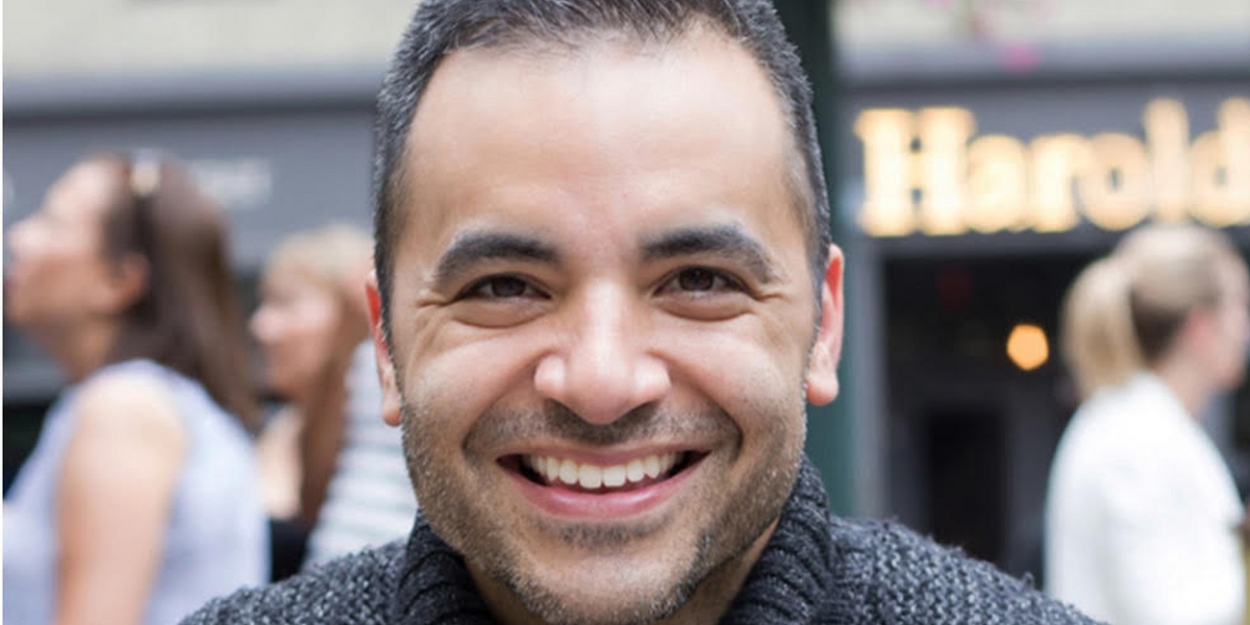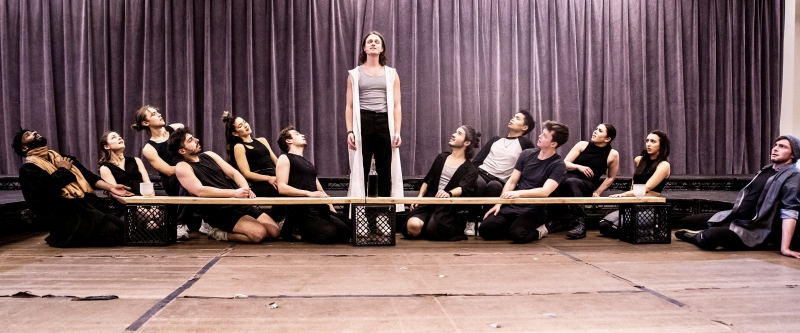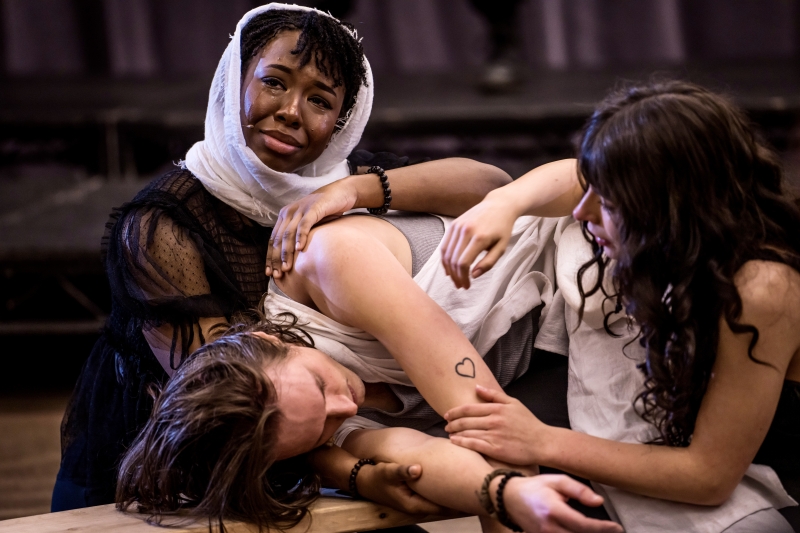Interview: Rick Hip-Flores Talks World Premiere of HIS STORY: THE MUSICAL, A Jesus Story for the 21st Century
Rick Hip-Flores shares what audiences can expect to see and hear with this new musical, and more!

The world premiere of His Story: The Musical, a new contemporary pop musical based on the life of Jesus, is coming to Dallas this summer! The musical features an original book, music and lyrics by Anna Miriam Brown, direction by two-time Tony Award nominee Jeff Calhoun (Newsies, Bonnie & Clyde) and choreography by Eamon Foley (Annie at The Hollywood Bowl). The engagement launches May 5, 2023 at the Broadway Tent at Grandscape, and officially opens on May 18.
Rick Hip-Flores, whose impressive resume includes his work as Musical Director of Natasha, Pierre & the Great Comet of 1812, Music Supervisor of In Transit, Associate Musical Director of Ain't Too Proud, and more, is the Music Supervisor, Orchestrator, and Arranger of His Story: The Musical.
BroadwayWorld spoke with Rick Hip-Flores about creating a Jesus story for the 21st century, what audiences can expect to see and hear, and much more.
What were your first thoughts when you heard about this project?
I had a lunch with Jeff Calhoun and [producer] Bruce Lazarus, and I sat down with them, and the very first thing that I said to them was very brazenly, "I have had this same idea." My idea was to do a contemporary telling of the Mary and Joseph story, which is how our show begins. Those were some of the first tracks that I heard, the Mary and Joseph tracks at the beginning of the show. So, I thought, 'This is kismet.' It came at the right time, it was sort of at the end of Covid. I thought this was a total winner, I heard the tracks and was blown away by how polished and professional they were, and how much I could envision a dramatic piece based on this music. So, I was all in from the get-go.

As orchestrator, music supervisor, and arranger, what does the creative process look like for you? Where do you begin?
Anna's instincts are wonderful, and she writes these great songs, she writes amazing hooks, with amazing chord progressions. The first step for me as an arranger and an orchestrator is to take her material and first identify what the influence is. A lot of times there will be a discussion with her about that, "What were you hearing?" This started as a concept album, but then we wrote a lot of new material, and that new material would come to me in the form of voice memo recordings on an iPhone. So, they were not finished in any sense, but the parts were all there.
So, my first step is to identify what the influences are, and once I have that then I think, "How do we structure this so that we are getting a structured dramatic song with a beginning, middle, and end?" And in song, that is in the form of verses and choruses so that it presents well in the show. So, I identify the influences, then I create a piano/vocal arrangement, and the vocal arrangement will include the vocal arrangement for a 20-person ensemble. And then once I have the piano and vocal arrangement, the final step is to enjoy the ornamental, decorative process of orchestrating it, and then I get to delve deeply into instrumentation and sound mixing, and all that complicated stuff.
There have been musicals about Jesus before, about biblical stories. How did you and the team go about finding and crafting the specific sound for this show? And what is the sound?
It's interesting because Anna has said that her influence was Hamilton, but Hamilton has many influences, and Hamilton has a million different genres that it goes through, it's not just all one color and one genre. Anna has approached this from a very eclectic musical background, and the task in writing any show is finding the variety in it, finding the different colors.
We were inspired to write something that sounded like a contemporary version of the bible, of the Jesus story. All the shows that are a part of the canon are now 40, 50 years old; this has been a long time coming to have a Jesus story told in the 21st century. I don't think that there really has been one that's become popular in the canon. To start with, "What is the sound of today? How do we make this sound like today?" That was probably the first inspiration for a sound. And from that germ of an idea, then you get to explore all the different genres it could possibly be. Is it modern day pop? Is it hip hop? Does it go into something more operatic sometimes, or symphonic? And it does all those things.

Like you said, there hasn't been a Jesus story for the 21st century, what can people expect to see and hear with this version of the bible story?
I think they can relate to it in a new way, seeing Jesus rap, and seeing Mary sing a power ballad that sounds like it might have been written by Adele. I think we respond to stories not only in what they're telling us, but how they're told. And we relate to it in the way that we relate to music that comes out now, and that is popular now, that's how we can relate to the bible story in a new way. It puts it in a different context. The story is timeless. We are not changing the details of the story, but we're changing how it's told.
What would you like to say to audiences who are planning to come see this show who may not be religious?
A lot of the people who are creating this show are not coming from necessarily a religious background or a religious bent on the show. I am personally spiritual, and I grew up with a lot of religion in my life and in my family, but I'm not particularly, myself, a practicing religious person. But I think the human element of the story is always first and foremost in our creation of it, and the idea of praising Jesus is something that a person who is religious might come and enjoy about the show, but at its core, it's about a man struggling to achieve something and bring something better to humanity. Anybody could relate to that in their own struggles in life and not necessarily be religious.
Do you have any final thoughts you'd like to share?
I think one of the things that's special about this show is the integration of music, dance, staging, all of the elements, and not only that integration, but the integration of things that are ancient with things that are contemporary. And that invites you to get lost in that tapestry of different elements. The way that it differs from, say, a book musical, where there's scenes and songs and they're all kind of stitched together. In this one it has this beautifully integrated feel, where you hopefully don't feel the scenes as much, but enjoy the immersive experience of this through-composed, and very nuanced telling of an old story.

Videos
